Research by Knox and Jones-Smith Cited in Story on the Effects of Sweetened Beverage Taxes
|
Existing research has found that many Americans face adverse health effects from the over-consumption of added sugars, but policy solutions to address this problem remain the subject of ongoing debate. A recent article in Scripps News reviewed the results of a study from CSDE Affiliates Melissa Knox (Economics) and Jessica Jones-Smith (Health Systems and Population Health, Epidemiology), which found that lower-income households reduced their consumption of sweetened beverages by nearly 50% after taxes were implemented in several cities. Read the full article here and the authors’ recent study here.
(read more) |
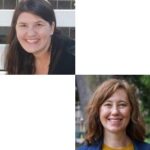 |
New Publication from Rebbe and Co-Authors Links Childhood Exposure to Domestic Violence and Child Protection Outcomes
|
A new study from CSDE External Affiliate Rebecca Rebbe (University of North Carolina) assessing the link between children’s domestic violence exposure and child protection outcomes was recently published in Child Maltreatment. The study, entitled “Child Protection Responses to Domestic Violence Exposure: Co-Occurring Safety Concerns and Investigation Outcomes,” examines administrative data for child protection investigations in Los Angeles County. The paper finds that investigations with domestic violence concerns were more likely to include co-occuring safety concerns, such as substance abuse and mental health issues, than investigations where no domestic violence concerns were reported. Read the study here.
(read more) |
 |
Casey Co-Authors Article on Dementia Risk from Wildfire Smoke
|
As wildfire smoke has become more common in recent years, a new study from CSDE Affiliate Joan Casey (Environmental and Occupational Health Sciences) and co-authors found a strong connection between long-term exposure to wildfire smoke and higher odds of dementia. The study, which found that long-term exposure to wildfire and non-wildfire fine particulate matter was associated with dementia diagnosis among 1.2 million Southern California residents, was recently published in JAMA Neurology. Read the study here and check out a recent interview with Dr. Casey on NPR.
(read more) |
 |
|
|
*New* UW Libraries Resources for Open Source Publication Costs
|
Did you know that UW Libraries has resources available to support open source publication costs in some journals? Learn more about how to take advantage of these opportunities here.
(read more) |
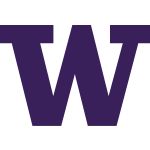 |
UW Libraries Announces Open Scholarship Community Fellowship
|
UW Libraries recently announced the call for Open Scholarship Community Fellows. The Open Scholarship Commons Community Fellows Workshop Series is a paid fellowship opportunity for graduate students underrepresented in the field of open scholarship. The goal of this Fellowship is to lift up students as experts in this field and create opportunities for peer to peer learning by offering student-led workshops. Equity is a core value of the UW Libraries Open Scholarship Commons, and this Fellowship, funded and co-administered by the UW Libraries Open Scholarship Commons and the eScience Institute, aims to support the expertise and leadership of underrepresented students in the field of open scholarship. Applications are due TODAY, December 2nd. Learn more here.
(read more) |
 |
Sign up to join the Early Career listserv!
|
We invite early career faculty affiliates to join our new mailing list, csde_earlycareer. Among other things, this is the way to find out info about our quarterly Early Career Affiliate happy hours, and you won't want to miss those! These will be a great way to meet up with other junior scholars in a fun and casual atmosphere over snacks and drinks. Who counts as early career, you ask? Typically we mean folks who are pre-promotion (i.e. assistant professor or equivalent), but we're not strict! Join the list here (Please note - this is for faculty only - we are strict about that. Sorry, all others!)
(read more) |
 |
*New* IES / NCER Research Training Grant Competition (LOI due 12/12/24)
|
The National Center for Education Research at IES released a new funding announcement for Research Training Programs in the Education Sciences (84.305B) for Fiscal Year 2025 (FY 2025). These research training programs seek to train and mentor students and researchers to encourage their entry into and success in education research careers. These investments are intended to improve the quality of education research and to build talent in the education sciences workforce. The four training programs are:
(read more) |
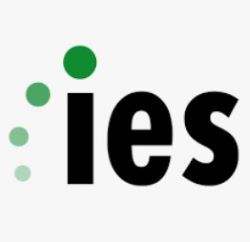 |
*New* Institute of Translational Health Sciences (ITHS) Team Science Workshop 2025 (register by 1/7/25)
|
The Team Science Workshop is a free, interactive training intended for interdisciplinary research teams working on a translational research project/study or within a research center. Teams will learn the theory and practice of team science. This workshop will be offered virtually during four 2-hour sessions on Wednesdays and Thursdays over a 2-week period. Each day, we will focus the first 90 minutes on team science education and training, and the final 30 minutes on team working sessions.
(read more) |
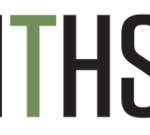 |
Max Planck Institute for Demographic Research (MPIDR) Population and Social Data Science Summer Incubator Program (1/8/25)
|
The Max Planck Institute for Demographic Research (MPIDR) is inviting applications from qualified and highly-motivated students for a Summer Research Visit. The goal of the Population and Social Data Science Summer Incubator Program is to enable discovery by bringing together data scientists and population scientists to work on focused, intensive and collaborative projects of broad societal relevance.
(read more) |
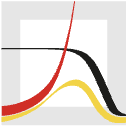 |
*New* Population Health Initiative Accepting Tier 2 Pilot Grant Applications (LOI due 1/13/25)
|
The Population Health Initiative recently announced the availability of Tier 2 Pilot Grants. The purpose of this tier of grants is to support faculty and PI-eligible staff to develop preliminary data or proof-of-concept needed to pursue follow-on funding to scale existing efforts. Awards of up to $65,000 each will be available to interdisciplinary research teams. Letters of intent are due January 13, 2025. Learn more about the opportunity and previously funded projects here.
(read more) |
 |
*New* Office of Global Affairs Accepting Applications for the 2025 Global Innovation Fund (due 1/31/25)
|
Applications for the Office of Global Affairs’ Global Innovation Fund are now open. This grant opportunity is intended to develop cross-college and cross-continent research collaborations, with award opportunities from $3,000 to $20,000 available to support fellowships, research projects, study abroad/away and teaching. Learn more about the various opportunities here. Applications are due January 31, 2025.
(read more) |
 |
Call for Abstracts: Data-Intensive Research Conference (due January 31, 2025)
|
Abstract submissions are now open for the 2025 Data-Intensive Research Conference. The 2025 conference theme is Understanding Health and Population Dynamics through Big Microdata. We seek submissions that use full count census data to examine health and population dynamics. We are particularly interested in projects that link persons, families, or communities across censuses or link full count data to other sources, including the creation of place-based measures or person-level linkages to external data.
(read more) |
 |
*New* Call for Abstracts: Workshop on the Integration Paradox (due February 1, 2025)
|
Empirical evidence shows that many migrants who are seemingly well “integrated” actually do not feel at home, report more discrimination and experience a weaker sense of belonging to their residence country than seemingly less integrated migrants. The literature on the integration paradox (IP) has expanded significantly in recent years, but it still falls short on longitudinal perspectives and empirical evidence on the underlying mechanisms and scope of countries and migrant groups studied. The International Union for the Scientific Study of Population (IUSSP) recently announced a research workshop at Utrecht University (Netherlands) on this subject.
(read more) |
 |
Call for Papers: Gender & Society Special Issue – Feminist Metascience, Feminist Open Science? Pain Points and Possibilities (Due 2/1/25)
|
Call for papers: Gender & Society Special Issue — Feminist Metascience, Feminist Open Science? Pain Points and Possibilities, due by Feb 1st, 2025. This special issue explores the relationship between feminism, metascience, and open science, seemingly disparate areas of inquiry of contemporary significance. This special issue will be a forum for feminist scholars to explore these relationships.
(read more) |
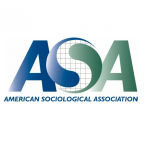 |
NSF Call for Proposals: Human-Environment and Geographical Sciences Program (Proposal Target Date 2/3/25)
|
The NSF’s Human-Environment and Geographical Sciences Program reissued its call for proposals. The call invites senior research proposals, early career development proposals, research coordination network proposals, conference and research community development activities, research experiences for undergraduates and graduates, and transdisciplinary research in environmental social science. The objective of the Human-Environment and Geographical Sciences program is to support basic scientific research about the nature, causes, consequences, or evolution of the spatial dimensions of human behaviors, activities, and dynamics as well as their interactions with environmental and social processes across a range of scales. Contemporary geographical research encompasses diverse research traditions and methodologies.
(read more) |
 |
Updating the Definition of Sexual and Gender Minority Populations in NIH-Supported Research
Statistics indicate that as of 2024, nearly eight percent of the U.S. population identifies as LGBT, with much of this growth attributed to increases in LGBT identification among younger generations. In recent years, policies and laws have been enacted in support of LGBTQI+ communities and their well-being. For example, the 21st Century Cures Act included provisions for the NIH Director to encourage efforts to improve research related to the health of sexual and gender minority (SGM) populations, including to increase participation of SGM populations in NIH-supported clinical research and to facilitate the development of methods for conducting SGM research. SGM people were designated as a population with health disparities for NIH research in 2016 by the Director of the National Institute on Minority Health and Health Disparities in consultation with the Director of the Agency for Healthcare Research and Quality. The NIH SGM health research portfolio has steadily grown and diversified since 2015.
(read more) |
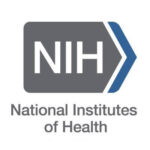 |
CSDE Population Research Planning Grants (PRPGs) (Rolling deadline)
|
Population Research Planning Grants (PRPGs) are designed to provide in-kind support and/or funds of up to $25k* to support a wide array of activity types throughout the development of a research project. As part of our mission to complement rather than duplicate other campus opportunities such as the Population Health Initiative seed grants, we will consider funding things activities such as the use of CSDE services beyond the standard allotments for affiliates.
(read more) |
 |
CSDE Matching Support to Supplement On-campus Funding (Rolling deadline)
|
CSDE Matching Support includes in-kind or monetary support to accompany a submission to other on-campus funding mechanism, such as PHI, EarthLab, or Urban@UW. All projects must have a CSDE affiliate who is UW faculty and is listed as a PI or co-PI, with any number of other collaborators. Note that we require (PRPGs) or strongly suggest (matching funds) contacting either Development Core Director (Steven Goodreau) or CSDE Director (Sara Curran) to discuss possibilities for your specific proposal before submission.
(read more) |
 |
*New* IPUMS Health Surveys Data Update
|
The IPUMS Medical Expenditure Panel Survey (MEPS) recently announced a new data release. IPUMS now includes 2022 data released by the Agency for Healthcare Research and Quality (AHRQ) earlier this year. This initial release updates over 1,100 variables from the Full Year Consolidated, Condition, Event, Prescribed Medicine, Appendix to the Event, and Pooled Variance files and adds variables about Long COVID. Learn more here.
(read more)
|
 |
NSF: Proposals Impacting Tribal Nation Resources & Interests
|
As of 5/20/2024, NSF proposals that may impact the resources or interests of a federally recognized Tribal Nation will not be awarded by NSF without prior written approval from the official(s) designated by the relevant Tribal Nation(s).
Proposers must:
- Seek guidance from the potentially impacted Tribal Nation on activities that require review and prior approval from that Tribal Nation’s authorized designee.
- Submit a written request to the relevant Tribal Nation (based on their guidance), for approval to carry out the proposed activity that requires their review and approval.
- Complete the checkbox for “Potential Impacts on Tribal Nations” on the Cover Sheet. Note, lead organizations are responsible for this on collaborative proposals & proposals with subawards considered a single unified project.
- Upload one of the following into "Other supplementary documents" of Research.gov:
- a copy of the written request to the relevant Tribal Nation to carry out any proposed activity/activities that may require prior approval from them
- written confirmation from the Tribal Nation(s) that review and approval is not required
- a copy of relevant Tribal Nation approval
(read more)
|
 |
Overview of Grant Application and Review Changes for Due Dates on or after January 25, 2025
|
This notice provides the research and research training community an overview of application and peer review changes impacting grant applications submitted for due dates on or after January 25, 2025, including:
- Simplified Review Framework for Most Research Project Grant Applications
- Revisions to the NIH Fellowship Application and Review Process
- Updates to Reference Letter Guidance
- Updates to NRSA Training Grant Applications
- Updated Application Forms (FORMS-I)
- Common Forms for Biographical Sketch and Current and Pending (Other) Support
Although each of these initiatives has specific goals, they are all meant to simplify, clarify, and/or promote greater fairness towards a level playing field for applicants throughout the application and review processes.
(read more) |
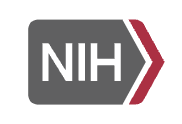 |
|
|

